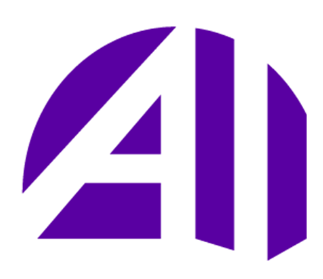
In July, the Allen School kicked off its inaugural AI4ALL summer program, online. Created to introduce artificial intelligence (AI) to underrepresented pre-college students, AI4ALL is a national program that works to diversify AI by recruiting students who identify with other groups underrepresented in AI. The University of Washington’s debut this summer is the first instance of AI4ALL to focus on students with disabilities and their representation in AI.
The University of Washington joined the program this year, offering a free, two-week data science and AI workshop. Organized by the Allen School’s Taskar Center for Accessible Technology (TCAT), directed by Anat Caspi, the program shows students how to understand, analyze, interpret and discuss real-world applications of data science and machine learning with the ultimate goal of understanding the impact and being comfortable pursuing further work in data science and machine learning.
“The camp aims to increase diverse youth representation in computer science and to promote fair practices among data scientists. Our specific focus at the UW instance of AI4ALL is on fairness and non-ableism in AI,” said Dylan Cottrell, a UW alum, a content writer at the Taskar Center, and a teaching assistant in AI4ALL. “Students learn about artificial intelligence, with a specific emphasis on creating accessible technologies with non-biased data that is fit to serve the diverse community of people who use AI in their daily lives.”
Students enrolled in the two-week camp had the opportunity to practice using tools in data science and machine learning while making connections with computer scientists and exploring the impacts and ethical implications of AI. Initially, it was intended to be a day camp for local students. But because the COVID-19 pandemic forced it to go online, many students around the country plus one from Germany, were able to participate. were able to participate. In addition to reaching more students, Caspi found other benefits to the online program as well.
“By offering the AI4ALL program virtually this year, TCAT was able to avoid some of the logistic difficulties of getting students to the UW campus, whether due to geographic distance, travel disadvantage, or home situations that wouldn’t allow them to be away from home. We were able to include students with disabilities and students from other diverse backgrounds from both the East and West Coasts,” Caspi said. “I feel that working concurrently through multiple virtual platforms, including teleconferencing, team communication technologies, collaborative programming environments and more, we were able to encourage active learning among students who may not have felt comfortable — or able — to speak in a classroom setting. Instead, they had a choice of voicing their knowledge, questions, opinions or concerns via one of the many platforms we were using. Importantly, I believe every single student had their voice heard, knew they were valued, and understood that there was a spot for them at the broad ‘AI table’.”
Some of the planned camp activities that we did not get to use virtually were intended to integrate tactile, tangible technologies for students to work with, removing the primary dependency on vision that many demos rely on, Caspi explained. But she hopes that next year the program will be in-person so that they can show students a robot demonstrating clustering algorithms. Such demonstrations would make the learning outcomes perceptible through multiple modes- involving visual, auditory and motion outputs — making one format accessible if another was not. Since it was virtual this year, they were unable to integrate those elements into the course.
Caspi said that while some participants had some exposure to programming and FIRST Robotics, this was most likely the first time many were exposed to more formal principles of AI. For campers like Sophia Lin, a junior high school student from Bellevue, Washington, AI4ALL was a great opportunity to learn more about it.
“AI4ALL is an extremely fast-paced and challenging data science program. Throughout the first week, I gained insight into various conceptual aspects of the process of training a machine to classify based on interpretation of training data, and was introduced to rigorous programming libraries and data collections that visualize data,” Lin said. “I have been able to open my mind to a wide range of fields that machine learning and data visualization can be applied to, and appreciate having the opportunity to expand my analytical mindset and critical thinking skills. I hope to apply the knowledge and programming skills to future projects that address people with disabilities, to enable them to access and utilize products and services.”
Krithika Subramanian, a high school junior from Oviedo, Florida, thought the program gave her exposure to an area of computer science that she had never considered before.
“My experience in AI4ALL has been thought-provoking, overwhelming, and fun. It has shown me an infinite amount of ways on how AI can be used and the problems it can solve. AI4ALL has opened my eyes to the other sides of the computer science world,” Subramanian said. “Even with coding experience, it has pushed my boundaries, expanding them to encompass an unknown world. A world where plotting a regression line does not seem so hard or using large data sets to classify a small almost insignificant point. Overall, this is one of the most enjoyable classes I have taken this summer and AI4ALL has exposed me to one of the most interesting fields ever.”
This summer the UW’s AI4ALL introduced 18 underrepresented students to data science and machine learning. The camp will continue next year, learn more about the program and how to enroll on the website.

